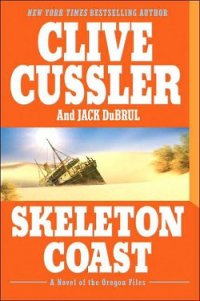The ship that found herself - Kipling Rudyard (книги онлайн полные версии бесплатно txt) 📗
There was just as much groaning and straining as ever, but it was not so loud or squeaky in tone; and when the ship quivered she did not jar stiffly, like a poker hit on the floor, but gave with a supple little waggle, like a perfectly balanced golf-club.
“We have made a most amazing discovery,” said the stringers, one after another. “A discovery that entirely changes the situation. We have found, for the first time in the history of ship-building, that the inward pull of the deck-beams and the outward thrust of the frames locks us, as it were, more closely in our places, and enables us to endure a strain which is entirely without parallel in the records of marine architecture.”
The Steam turned a laugh quickly into a roar up the fog-horn. “What massive intellects you great stringers have,” he said softly, when he had finished.
“We also,” began the deck-beams, “are discoverers and geniuses. We are of opinion that the support of the hold-pillars materially helps us. We find that we lock up on them when we are subjected to a heavy and singular weight of sea above.”
Here the Dimbula shot down a hollow, lying almost on her side; righting at the bottom with a wrench and a spasm.
“In these cases—are you aware of this, Steam?—the plating at the bows, and particularly at the stern—we would also mention the floors beneath us—help us to resist any tendency to spring.” The frames spoke, in the solemn awed voice which people use when they have just come across something entirely new for the very first time.
“I’m only a poor puffy little flutterer,” said the Steam, “but I have to stand a good deal of pressure in my business. It’s all tremendously interesting. Tell us some more. You fellows are so strong.”
“Watch us and you’ll see,” said the bow-plates, proudly. “Ready, behind there! Here’s the father and mother of waves coming! Sit tight, rivets all!” A great sluicing comber thundered by, but through the scuffle and confusion the Steam could hear the low, quick cries of the ironwork as the various strains took them—cries like these: “Easy, now—easy! Now push for all your strength! Hold out! Give a fraction! Hold up! Pull in! Shove crossways! Mind the strain at the ends! Grip, now! Bite tight! Let the water get away from under and there she goes!”
The wave raced off into the darkness, shouting, “Not bad, that, if it’s your first run!” and the drenched and ducked ship throbbed to the beat of the engines inside her. All three cylinders were white with the salt spray that had come down through the engine-room hatch; there was white fur on the canvas-bound steam-pipes, and even the bright-work deep below was speckled and soiled; but the cylinders had learned to make the most of steam that was half water, and were pounding along cheerfully.
“How’s the noblest outcome of human ingenuity hitting it?” said the Steam, as he whirled through the engine-room.
“Nothing for nothing in this world of woe,” the cylinders answered, as though they had been working for centuries, “and precious little for seventy-five pounds head. We’ve made two knots this last hour and a quarter! Rather humiliating for eight hundred horse-power, isn’t it?”
“Well, it’s better. than drifting astern, at any rate. You seem rather less—how shall I put it?—stiff in the back than you were.”
“If you’d been hammered as we’ve been this night, you wouldn’t be stiff—iff—iff, either. Theoreti—retti—retti—cally, of course, rigidity is the thing. Purrr—purr—practically, there has to be a little give and take. We found that out by working on our sides for five minutes at a stretch—chch—chh. How’s the weather?”
“’Sea’s going down fast,” said the Steam.
“Good business,” said the high-pressure cylinder. “Whack her up, boys. They’ve given us five pounds more steam”; and he began humming the first bars of “Said the young Obadiah to the old Obadiah,” which, as you may have noticed, is a pet tune among engines not built for high speed. Racing-liners with twin-screws sing “The Turkish Patrol” and the overture to the “Bronze Horse,” and “Madame Angot,” till something goes wrong, and then they render Gounod’s “Funeral March of a Marionette,” with variations.
“You’ll learn a song of your own some fine day,” said the Steam, as he flew up the fog-horn for one last bellow.
Next day the sky cleared and the sea dropped a little, and the Dimbula began to roll from side to side till every inch of iron in her was sick and giddy. But luckily they did not all feel ill at the same time: otherwise she would have opened out like a wet paper box.
The Steam whistled warnings as he went about his business: it is in this short, quick roll and tumble that follows a heavy sea that most of the accidents happen, for then everything thinks that the worst is over and goes off guard. So he orated and chattered till the beams and frames and floors and stringers and things had learned how to lock down and lock up on one another, and endure this new kind of strain.
They found ample time to practise, for they were sixteen days at sea, and it was foul weather till within a hundred miles of New York. The Dimbula picked up her pilot, and came in covered with salt and red rust. Her funnel was dirty-grey from top to bottom; two boats had been carried away; three copper ventilators looked like hats after a fight with the police; the bridge had a dimple in the middle of it; the house that covered the steam steering-gear was split as with hatchets; there was a bill for small repairs in the engine-room almost as long as the screw-shaft; the forward cargo-hatch fell into bucket-staves when they raised the iron cross-bars; and the steam-capstan had been badly wrenched on its bed. Altogether, as the skipper said, it was “a pretty general average.”
“But she’s soupled,” he said to Mr. Buchanan. “For all her dead-weight she rode like a yacht. Ye mind that last blow off the Banks? I am proud of her, Buck.”
“It’s vera good,” said the chief engineer, looking along the dishevelled decks. “Now, a man judgin’ superfeecially would say we were a wreck, but we know otherwise—by experience.”
Naturally everything in the Dimbula fairly stiffened with pride, and the foremast and the forward collision-bulkhead, who are pushing creatures; begged the Steam to warn the Port of New York of their arrival. “Tell those big boats all about us,” they said. “They seem to take us quite as a matter of course.”
It was a glorious, clear, dead calm morning, and in single file, with less than half a mile between each, their bands playing and their tugboats shouting and waving handkerchiefs, were the Majestic, the Paris, the Touraine, the Service, the Kaiser Wilhelm II., and the Werkendam, all statelily going out to sea. As the Dimbula shifted her helm to give the great boats clear way, the Steam (who knows far too much to mind making an exhibition of himself now and then) shouted:
“Oyez! Oyez! Oyez! Princes, Dukes, and Barons of the High Seas! Know ye by these presents, we are the Dimbula, fifteen days nine hours from Liverpool, having crossed the Atlantic with four thousand ton of cargo for the first time in our career! We have not foundered. We are here. ’Eer! ’Eer! We are not disabled But we have had a time wholly unparalleled in the annals of ship-building! Our decks were swept! We pitched; we rolled! We thought we were going to die! Hi! Hi! But we didn’t. We wish to give notice that we have come to New York all the way across the Atlantic, through the worst weather in the world; and we are the Dimbula! We are—arr—ha—ha—ha-r-r-r!”
The beautiful line of boats swept by as steadily as the procession of the Seasons. The Dimbula heard the Majestic say, “Hmph!” and the Paris grunted, “How!” and the Touraine said, “Oui!” with a little coquettish flicker of steam; and the Servia said, “Haw!” and the Kaiser and the Werkendam said, “Hoch!” Dutch fashion—and that was absolutely all.



